Last week I wrote about looking forward to my Grown Woman Internship with Citi FM:
I grew curious how they work behind the scenes – how do they prepare? How much time goes into each show? What best practises do they have to share as a successful team? How do they keep their enthusiasm when uncovering so much hardship?
Now (or rather last week, but an unfortunate issue involving ECG stopped me from posting it then), I have spent a week with the Citi Breakfast Show at Citi FM and I have to say I am the wiser for it. I did not get complete answers to all my questions, but I got a start and also many other insights. Before I get to my initial questions, here are my notes from the week:
Monday. Shocked by the chaos and the apparent ad hoc-ness of determining what happens on air. People who are coming on seem to be called the same morning or, more often, call in themselves. Learned the word “plotting”, that is planning the show by the producer of the show, Sanda. The morning was dominated by an accident blocking morning traffic into Accra and was it the man selling his girlfriend for ritual murder-story? I talked to Deputy News Editor Boakye about the news and his work schedule in the newsroom. I had a high pulse the whole morning. Talked to journalist/host Godfred over lunch. I was asked to do some research on “The real cost of Ghana’s brain-drain”.
Tuesday. Was going to be a show on values, but due to the Transparency International corruption perception index coming out, it became a show about corruption. Started to realize how much current affairs sway the content of the show. Production assistant Fred commented on my frequent tweeting. After the show, TV program “Who’s behind” from ViaSat came to interview Bernard. That is after him spending 4 hours on air. He was still smiling. Had a talk with co-host Nhyira and production assistant/journalist Pearl.
Wednesday. Many of the institutions mentioned as corrupt had gotten in touch and the show was supposed to be a follow up of that, but a discussion on corruption in the media and an animated interview with the opposition shifted the topic. After having done extensive live-tweeting for a few days, I was asked to do twitter training with Citi people. Had lunch with a Canadian journalist from a Human Rights organization spending 6 months in the newsroom and turned in my Brain-Drain report. Hopefully, it will be the basis of a Citi Breakfast Show to come!
Thursday. We did not really know what topic to go on, the news was a bit scattered and did not provide a clear direction. I took part in the discussion. A news item on three young robbers started a discussion on the reasons behind very young criminals and a discussion on youth unemployment ensued. I quickly did some research and found some statistics of youth unemployment in Ghana (65% in 2011 according to the World Bank) and some reasons according to academic research. Within minutes those facts were read on air. I had lunch with two of my former students from Ashesi who were also interns at the station and compared notes. I partook in a Facebook training in the afternoon.
Friday. The morning started with a discussion on traditional practices stepping in where the state and judiciary system should be, I think a rape case in the news was the starting point of the talk. But then we compared notes and realized that no one had been able to make a call on MTN since last evening and the “plotting” turned to what we can do with this. Just complain? Bernard said he wanted answers and the producers started calling up the telcos. I started a discussion on Twitter with the hashtag #dearghtelcos and then things went crazy….People from #YaleConfGH stopped by to do promotion. At least two of these guests are on every day. As a cherry on top of my week, hosts Bernard and Nhyira did a mini interview with me on air. During the weekly Friday meeting for the team Co-host Nana Ama put a question straight to me, “Kajsa, you have been here for a week now, what do you think?” For the team to want my opinion was a golden moment for me!
Answers to my questions:
How do they prepare?
I learned in the reverse they “plot” on Fridays for the week, but then stay flexible to be relevant. They are four, sometimes five hosts in the studio and all of them spend hours every day reading news, features and books. In the morning before the show starts, they “plot” the show of the day, but frequently defer from it.
How much time goes into each show?
Do I know this? I am not sure they even know themselves as, I was surprised to find out, for all of the crew, the City Breakfast Show (airing 6-10am on weekdays) is NOT a full time job. All of the hosts, including the main host Bernard have jobs at the station our outside. For instance Nana Ama is the Online Editor and Bernard the Operations Manager of the station.
What best practises do they have to share as a successful team?
- They start everyday with a meeting and end every week with a meeting. – I think this is important as it creates a frame within which they can be creative.
- They are experts in their various fields. – They find a way to efficiently mill through heaps of data and be up to date on many fronts.
- They are young. – The whole station seem like a very young workplace and the vibrancy of workers allow for high tempo and fresh thinking.
How do they keep their enthusiasm when uncovering so much hardship?
They have a mission to influence Ghanaians and change Ghana. They aim to make radio that get results and they are getting there. I found it interesting, that people in power call them every day to explain themselves! That in an environment where we complain there is little accountability! Privately, some of them have faith, others family to fall back on, because Chale every day, it is a new, horrible story.
What did I learn?
- As always, you learn more about yourself than anything else when stepping out of your comfort zone. It was really nice to be at an organization without any money changing hands, formal agreement, I felt no stress to perform. Ahhhh.
- I also learned, I love the news room pressure – that vibe, that “the deputy minister is on the phone”, “Wait, I have the police on the other line!”, “Can you get me numbers?”, “What did the Graphic say about this? Quick!” – it is addictive!
- I also found I quickly assert myself and participate. I had planned to “be a fly on the wall”, but discussions were just too interesting not to take part of.
- Finally, I like how Twitter and Facebook also allows you into a discussion that might be held on air. On Friday, we saw how many “listeners” follow through social media when in 15 minutes 80 comments flowed in via Facebook. Clearly, there is much more to explore in the Social Media/Radio interface in Ghana.
One of my readers pointed me to this article on taking an internship at the age of 30. The writer suggests being an intern after a certain age “can seem like a step backward or even feel a bit embarrassing”, and I guess it can. But then again , why should we always step forward and upward? In the wisdom of Ghanaian folklore, “Sankofa” or “go back and fetch it” suggests that we have much to learn from that which lies behind us!
In hindsight, doing a Grown Woman internship with my idols at Citi FM was a great idea, an exciting week and absolutely a learning opportunity for life!
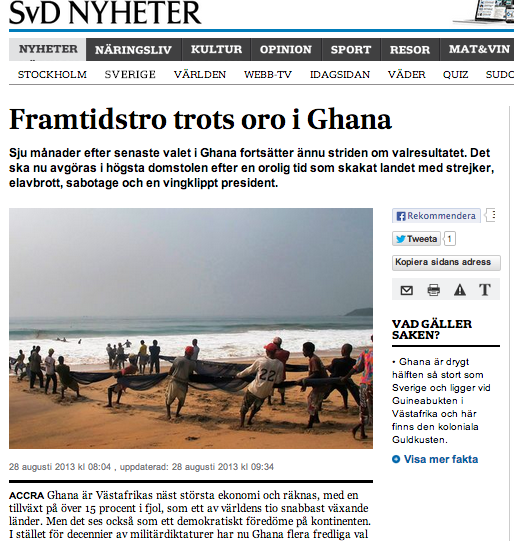

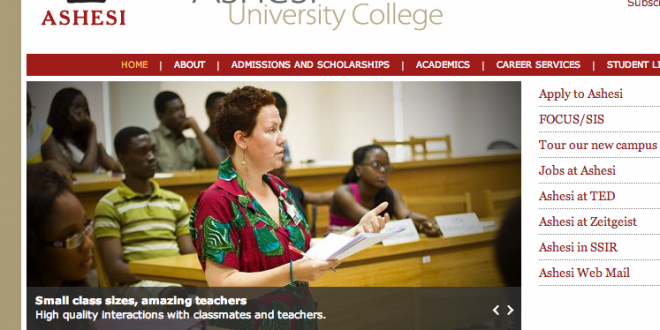
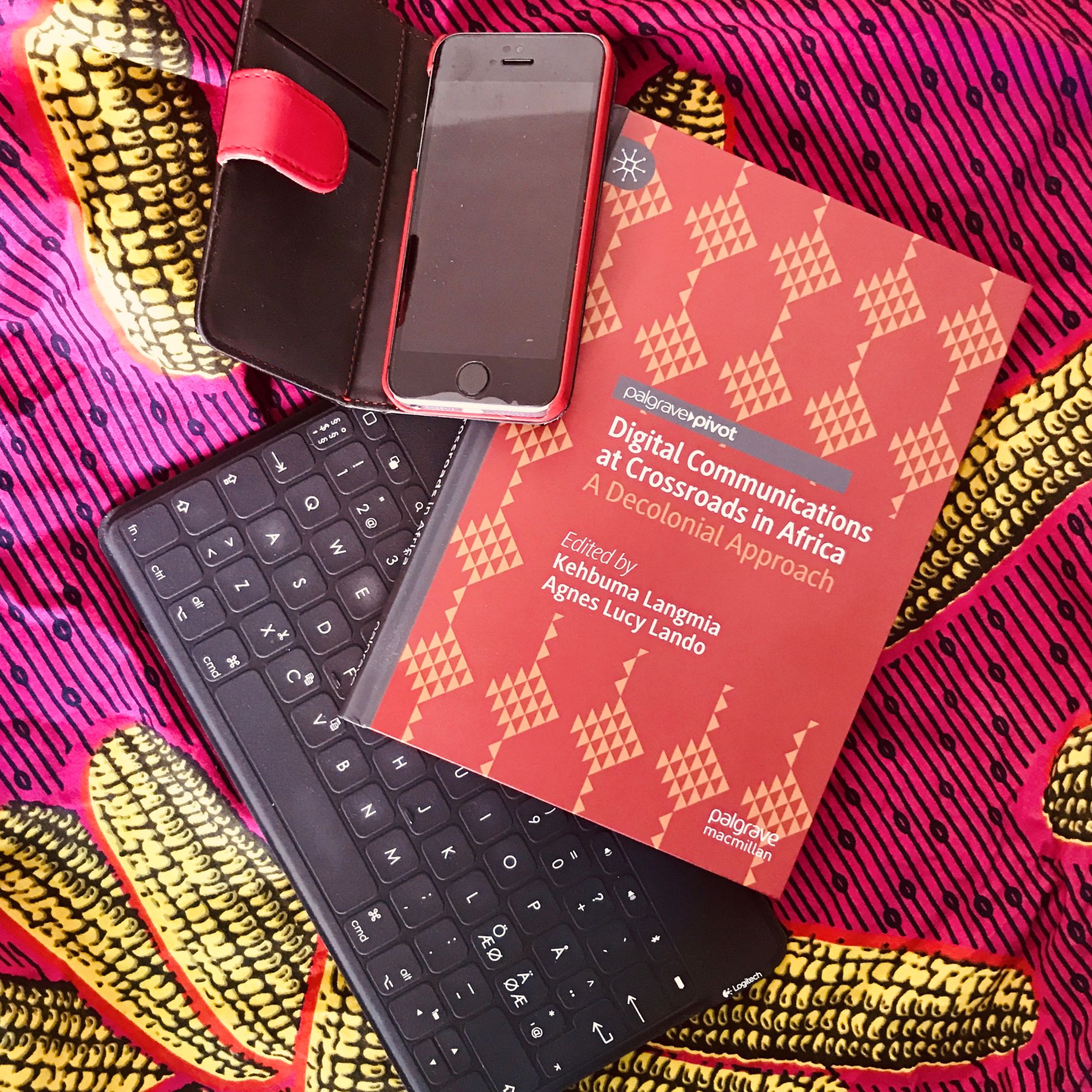
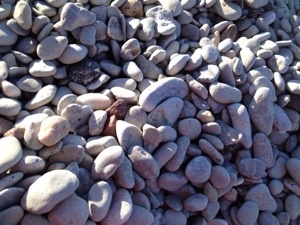

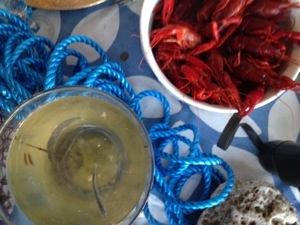

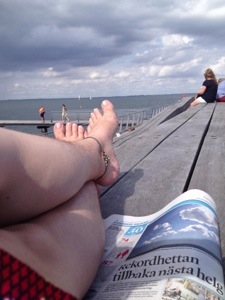
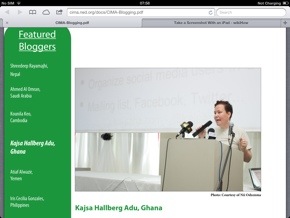
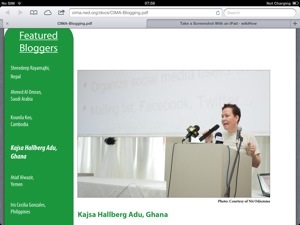
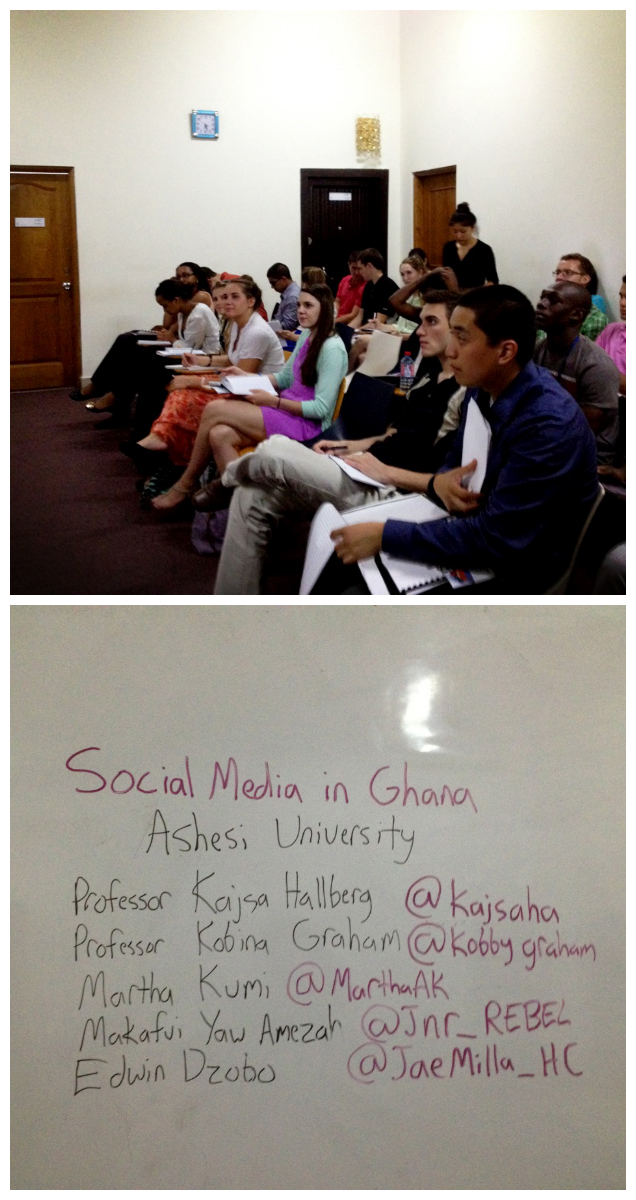 Last year, I got an email from
Last year, I got an email from 

